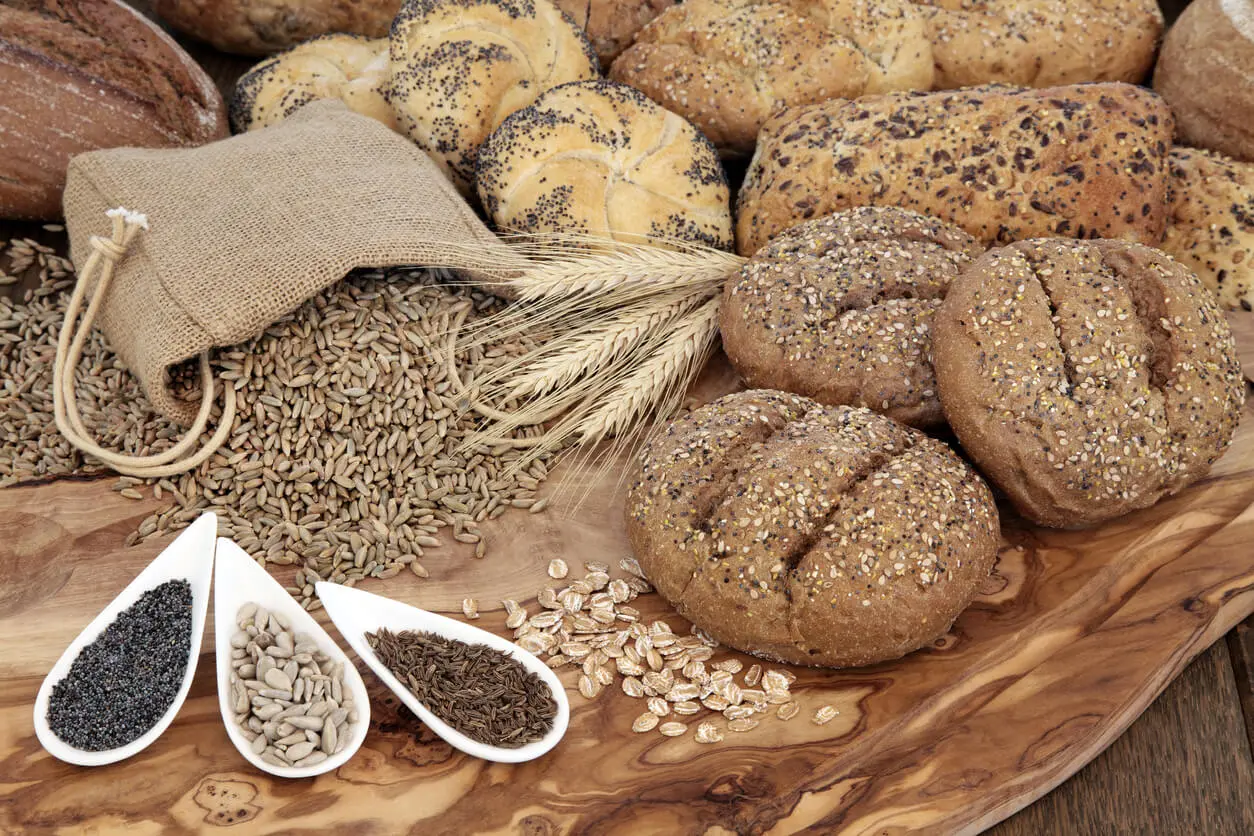Gestational Diabetes Diet: What to Eat for a Healthy Pregnancy
What to eat and avoid to prevent and manage gestational diabetes
Gestational diabetes mellitus (GDM) is a common complication of pregnancy that affects 6% of all pregnancies in the US. This type of diabetes occurs during the hormone rush of pregnancy, which can alter how your body uses insulin.
GDM can cause severe complications for both mother and fetus. However, it can be managed through careful monitoring and several healthy lifestyle adjustments. Chief among these adjustments is diet. A healthy diet is critical for a healthy pregnancy, especially in women who have diabetes or are at risk of developing diabetes. This blog article will detail eating strategies and food recommendations to help mitigate gestational diabetes.
Looking for more information? Book an online doctor appointment on Sesame to discuss diabetes during pregnancy with a licensed health care provider.
What is Gestational Diabetes?
Gestational diabetes is a condition that arises during pregnancy when a pregnant woman experiences elevated blood glucose levels, also referred to as blood sugar levels. This increase in blood sugar is primarily attributed to the hormonal and physiological changes that naturally occur in the female body during pregnancy, including weight gain.
During pregnancy, the placenta produces hormones that can interfere with the body's ability to utilize insulin effectively. Insulin is the hormone responsible for regulating blood sugar levels. Consequently, pregnancy often augments insulin resistance, making it more challenging for the pancreas to generate sufficient amounts of insulin to keep blood sugar levels in check.
This disruption in the delicate balance between insulin sensitivity and production ultimately results in elevated blood sugar levels, which we recognize as gestational diabetes. While genetic factors and pre-existing insulin resistance may contribute to the risk, the primary underlying cause is the hormonal turmoil associated with pregnancy.
Gestational diabetes typically emerges during the latter part of pregnancy, typically in the third trimester, which falls within the 24th to 48th weeks of gestation.
Risk factors that increase the likelihood of developing GDM include:
- Age (women over the age of 25 are more likely to develop gestational diabetes)
- High blood pressure
- Heart disease
- Obesity
- Prediabetes or personal history of GDM
- Family history of diabetes
- Polycystic ovary syndrome (PCOS)
- Previous birth of a baby weighing more than 9 lbs
- Race: Women of African, Asian, Hispanic, Native American, or Pacific Island descent are more likely to develop gestational diabetes
Healthy Foods for Gestational Diabetes
There is no miracle diet for GDM in mothers or newborns. Traditionally, restricting carbohydrate intake—especially simple carbohydrates—has been favored because it appears to reduce elevated blood sugar levels after eating and fetal overgrowth (excessive growth before birth).
Health care providers also emphasize the benefits of eliminating or reducing the consumption of sugar-sweetened beverages like soda or fruit drinks. Mothers managing GDM are advised to swap these sugary drinks with water, herbal teas, and decaffeinated coffee. Beverages containing noncaloric sweeteners should be consumed in moderation, as many of these sweeteners come from artificial sources.
A typical meal plan for patients with GDM includes three small- to moderate-sized meals and two to four snacks. Ongoing adjustment of the meal plan is based upon results of self-glucose monitoring, appetite, and weight-gain patterns, as well as consideration for maternal dietary preferences and work, leisure, and exercise schedules.
Here are some of the best foods to pick up during your next grocery store visit for a balanced diet.
Fruits and Vegetables
Whole fruits and veggies are low in calories, high in fiber, and packed with essential vitamins and minerals. They have a low glycemic index, which means they slowly release sugar into the bloodstream, helping stabilize blood sugar levels. Additionally, fruits and vegetables provide a wide range of antioxidants that can reduce inflammation and support overall health during pregnancy. Including colorful fruits and vegetables in your diet can promote better blood sugar control and ensure you and your baby receive the nutrients necessary for a healthy pregnancy.
When shopping for fruits and vegetables, prioritize whole fruit over fruit juice. Fruit juice does not have the fiber content of whole fruit. If you want to buy fruit juice, opt for a brand that does not contain added sugars.
Some of the best fruits to eat during pregnancy include:
Berries Oranges Mangoes Avocados Bananas Apples
Opt for non-starchy vegetables such as:
- Broccoli
- Peppers
- Onions
- Green beans
- Green leafy vegetables (like kale or spinach)
- Cucumbers
Sweet potatoes are a healthy alternative to other types of potatoes or starch but still contain considerable carbs. Talk to your health care provider or a registered dietitian to determine the best way to work sweet potatoes into your diet.
Lean Proteins
Lean proteins play a crucial role in helping to stabilize blood sugar levels. These protein sources, such as poultry, fish, tofu, and legumes, have minimal impact on blood sugar because they are slow to digest and don't raise glucose levels rapidly. Additionally, lean proteins are essential for fetal development and maternal health during pregnancy. They provide vital nutrients like iron, calcium, and amino acids that support the mother and the baby.
Protein intake should be distributed throughout the day and included in all meals and snacks to promote satiety, slow the absorption of carbohydrates into the bloodstream, and provide adequate calories.
A bedtime high-protein snack is recommended to prevent accelerated (i.e., starvation) ketosis overnight and maintain fasting glucose levels within the target range.
Some safe proteins to eat during pregnancy include:
- Chicken breast
- Salmon
- Lean ground beef
- Sugar-free (or unsweetened) Greek yogurt
- Other low-fat dairy products
- Hummus
- Lentils
- Quinoa
Healthy Fats
Incorporating healthy fats into your diet can be beneficial. They help slow down carbohydrate sugar absorption, promoting better blood sugar control. Healthy fats also play a crucial role in developing the baby's nervous system and brain. Moreover, they contribute to a feeling of fullness and satiety, helping pregnant women manage their appetite and weight gain. By including these fats in moderation, you can support your blood sugar levels and overall health during pregnancy while ensuring your baby receives essential nutrients for growth and development.
Some sources of healthy fats include:
- Olive oil
- Avocados
- Seeds
- Nuts
- Nut butter (like almond or peanut butter)
Whole Grains
While incorporating carbohydrates like whole grains into your meal plan can be tricky, these foods can play a key role in managing blood sugar levels and helping you feel full for longer. Unlike refined grains, whole grains like whole wheat, brown rice, and oats contain complex carbohydrates and dietary fiber. These components help stabilize blood sugar levels by slowing down the digestion and absorption of glucose. This gradual release of sugar into the bloodstream can aid in maintaining consistent blood sugar levels throughout the day.
Additionally, whole grains provide essential nutrients such as B vitamins, iron, and magnesium, crucial for maternal and fetal health during pregnancy.
Healthy whole-grain foods include:
- Whole grain cereals with no artificial sweeteners or added sugars (check out Alpine’s No Sugar Added Muesli)
- Whole grain breads (Dave’s Killer Bread) is a great option)
- Low-carb tortillas (like Siete Almond Flour Tortillas)
Healthy Eating Habits
Buying healthy whole foods is just one part of controlling blood sugar levels. Sticking to some eating habits that prevent blood sugar spikes and manage your appetite is also important.
Avoid Processed Carbohydrates and Sugary Foods: Avoiding processed carbohydrates and sugary foods is crucial in managing gestational diabetes. Processed carbs and sugary items like sugary drinks, white bread, white rice, and sweets can cause rapid spikes in blood sugar levels, making it challenging to maintain stable glucose levels. By removing these high-glycemic and starchy foods, pregnant women with gestational diabetes can control their blood sugar better. Instead, focus on whole, unprocessed whole grains, which can help regulate blood sugar, support a healthier pregnancy, and reduce the risk of complications for both the mother and the baby.
Count Carbs: Counting carbohydrates can be valuable in managing gestational diabetes. Pregnant women with this condition can better regulate their blood sugar levels by monitoring and controlling carbohydrate intake. Knowing the quantity of carbs in meals allows for more precise insulin management, ensuring the right amount of insulin to match the amount of carbohydrates you eat and preventing spikes or drops in blood sugar. This approach helps maintain stable glucose levels throughout the day, reducing the risk of complications and promoting a healthier pregnancy for both the mother and the baby.
Portion Control: Keeping portion size in check helps regulate calorie and carbohydrate intake, which in turn helps stabilize blood sugar levels. Eating smaller, balanced serving sizes throughout the day can prevent high blood sugar levels after meals. It also aids in managing weight gain during pregnancy, as excessive weight gain from overeating can exacerbate gestational diabetes.
Get Physical: Exercise helps improve insulin sensitivity, making it easier for the body to utilize glucose effectively. It also aids in weight management, which is crucial for women with gestational diabetes. Physical activity can help lower blood sugar levels, reduce the risk of complications, and promote a healthier pregnancy overall. However, pregnant women must consult with their health care team before starting any exercise routine to ensure it is safe and appropriate for their situation. Regular physical activity can be a valuable component of a comprehensive diabetes care plan.
Gestational diabetes is often easily managed with a combination of healthy eating habits, a balanced diet, and regular physical activity. If these measures don’t adequately address your condition, your provider may choose to prescribe medication to help protect you and your baby. If this is the case, don’t panic. Different patients require different treatment plans.
Most importantly, you must collaborate with your health care team to find a lifestyle and treatment plan that works for you.









